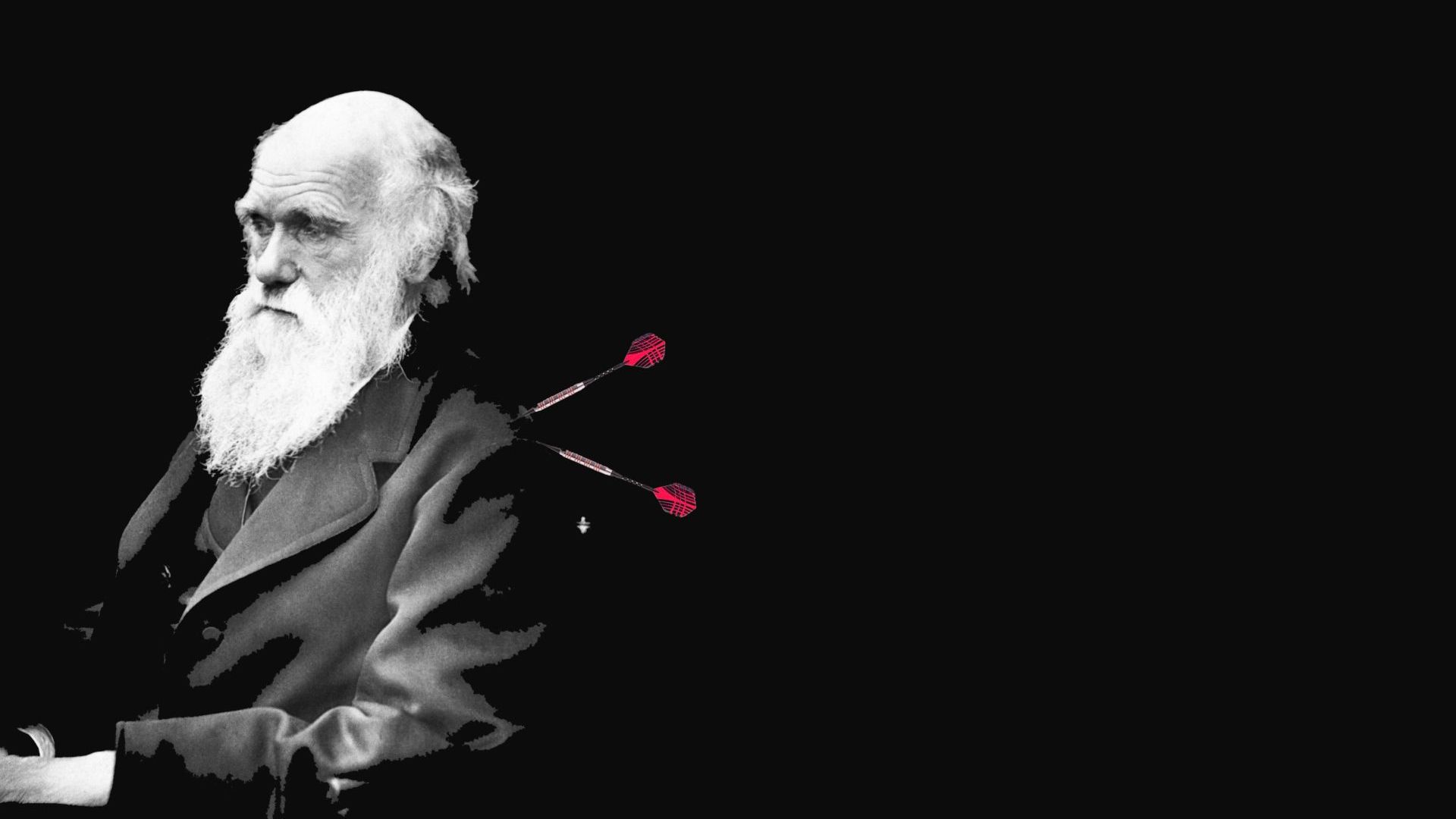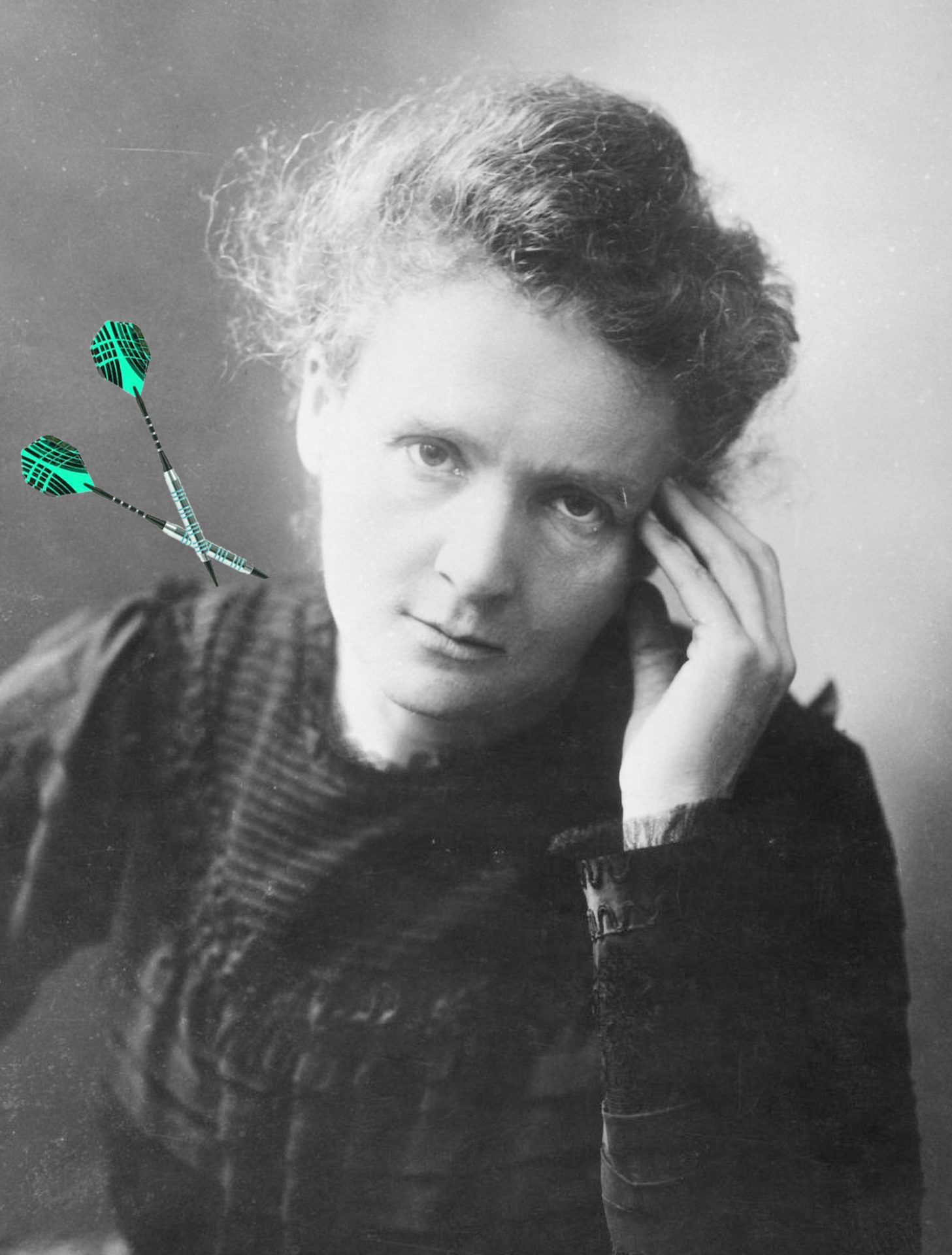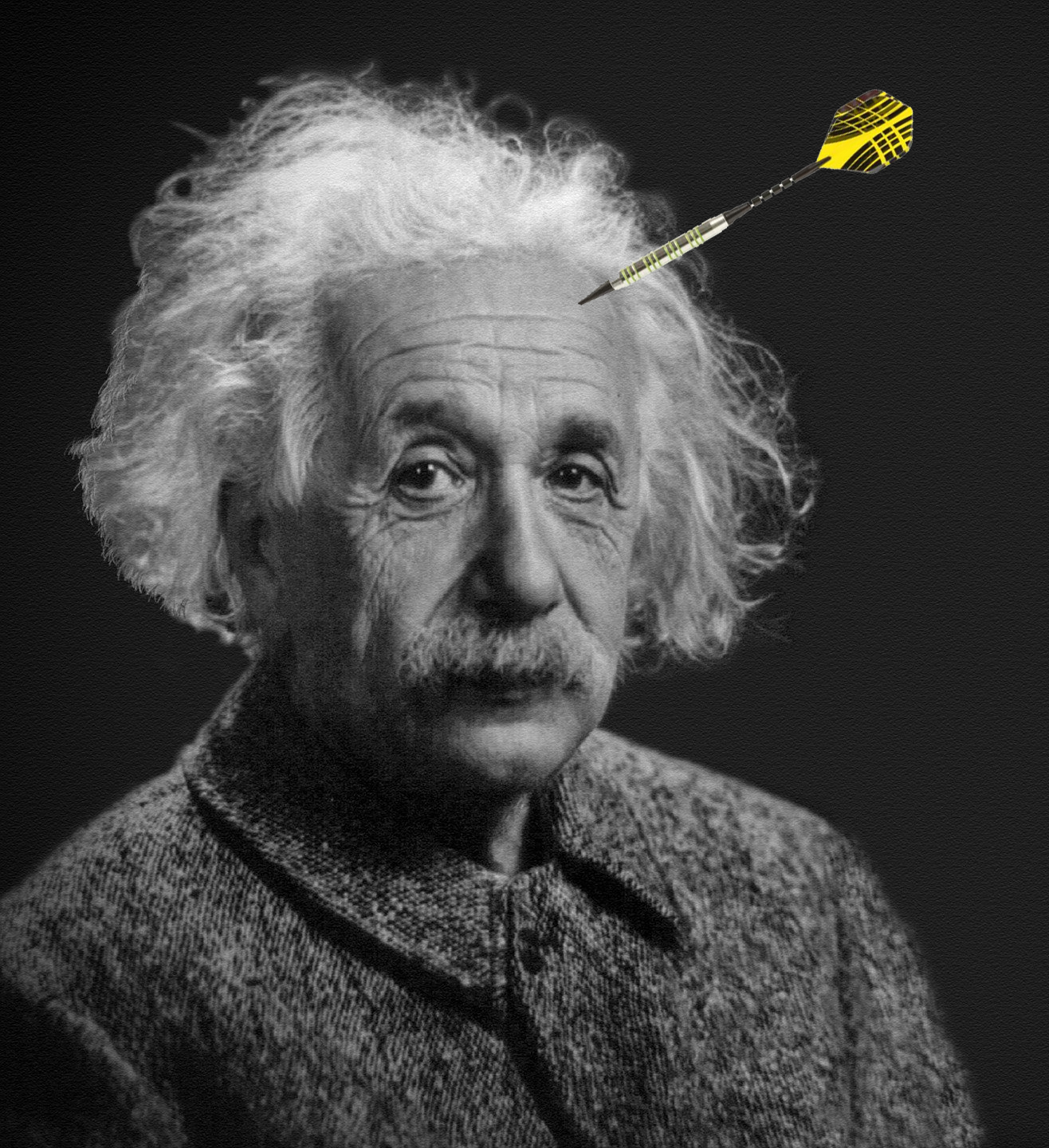‘I’ll set your house on fire’ – Radboud scientists also experience online hate and intimidation
-
 Image via Wikicommons (edited by Vox)
Image via Wikicommons (edited by Vox)
Nasty phone calls, emails with tirades and sometimes a handwritten threatening letter: Radboud scientists also face intimidation in many forms and degrees. Just because some people don't like their research. Part 1 of a diptych on intimidation. 'I looked over my shoulder more often.'
Radboud scientist Martijn de Koning had contact with the police twice in his career. Not because of a theft at his office but due to reactions to his research. The first time, he was working at VU University Amsterdam, the second time at Radboud University, where he is still carrying out research into Islamophobia and activism and radicalisation among Muslims in Europe. That in itself is enough to initiate a stream of (online) hate, intimidation and threats.
As De Koning knows, a serious threat – people letting you know that they know where you live – disturbs your routine. In the second instance of threats, at Radboud University, multiple phone calls were made by one person to various locations, although not to De Koning himself. De Koning prefers not to go into details. After that incident, about three years ago, he was on his way home from the university. ‘A route that you would normally take on autopilot,’ says De Koning. But now he looked over his shoulder more often. ‘I was standing at the station and there was only one other person, a man. I immediately thought: “Should I stand a bit farther away from him?”’
The VSNU (Association of Universities of the Netherlands) see threats, intimidation and hate (online or in real life) aimed at scientists increasing. The organisation doesn’t keep a record of the numbers but is receiving more and more signals from the scientists themselves, according to their spokesperson. At present, the association is working on a guide for universities and scientists, to help those affected. ‘The guide will be really practical,’ says the spokesperson. ‘What can you do? What options are there in each situation?’
‘Should I stand a bit farther away from him?’
In Part 1 of this diptych on intimidation in science, Vox spoke with seven Radboud scientists about their experiences with hate, intimidation or even threats. The hate sometimes comes through online platforms, sometimes it’s even neatly written in an email or letter. In the mildest cases, it’s an irritating distraction and in the most severe cases, it results in self-censure, fear or feeling unsafe. And that can certainly hinder their work.
Tirades
‘Traitor’ was the name Martijn de Koning was most often called in the last fifteen years that he has been doing research. But also: ‘I hope you get taken prisoner by IS, that’ll teach you.’ ‘Then there are the people who think I’m a Muslim, and voice their comments on that,’ says De Koning. ‘And there are people who threaten to harm me. I remember someone on Twitter saying they’d like to come after me with a pitchfork. I grew up on a farm so I thought that was quite funny. But my colleagues took it more seriously and reported the post to Twitter.’
Tirades happen frequently, according to the seven scientists VOX interviewed. One anonymous male professor (see Accountability) used to often seek publicity until a few years ago. Frequently, it led to positive reactions but there were often nasty reactions too. He was sent emails calling him names. ‘And I saw my name and photo appear as a target on platforms such as GeenStijl. That makes you recognisable to everyone.’
Corona has initiated a new stream of hate messages. In the first half of 2020, Ira Helsloot, professor of Safety Management, decided to speak out against the corona measures. ‘I received a hundred more or less threatening reactions next to thousands expressing support,’ he says.
‘On Twitter, I’ve been added to the list ‘attention-seeking whore or crazy’
The general trend of the vast majority of the emails and posts on LinkedIn (‘I don’t read Twitter anymore.’): ‘I hope you and your family get corona.’ And the odd one said: ‘I’m going to come and cough in your face’ or: ‘Nazi’ and variations on that theme. Helsloot had already had experience with nasty reactions when he carried out a study into the effectiveness of the Fire Brigade. It turned out that the fire truck that arrives first on the scene never saves anyone. Firefighters consequently sent him hate mail. ‘I’ll personally come and set fire to your house.’
Andreas Voss, physician-microbiologist and a well-known member of the Outbreak Management Team (OMT) was called ‘every name you can think of’. That included frequent references to his German background – for example that it was time there was a new Neurenberg trial (where Nazi leaders were tried, ed.). One time, Voss received a threatening letter at his home address. When the threats against him and other OMT members were reported in the media, things quietened down, surprisingly enough. Voss: ‘I think it was a wake-up call for some people.’
Sexist garbage
Female scientists often have to deal with a sexist undertone in the hate messages. ‘And people of colour get racist messages, or their religion is involved,’ says De Koning. A few months ago, assistant professor Saskia Glas wrote a paper on the public opinion on homosexuality in Arab countries. The media took up the story and Glas soon appeared in an article on GeenStijl.
‘The trend of the piece was that we had no idea what we were talking about,’ says Glas. The article wasn’t so bad, but Glas had more of a problem with the comments below it. ‘You should never read them, of course, but I did. I stopped after an hour. GeenStijl will never say “You should rape this woman” but the ’trolls’ do say “She lives in Nijmegen, let’s pay her a visit.”’ Glas’ co-author, a man, was also mentioned but the remarks about Glas were almost all about her appearance. ‘I was sexualised,’ says Glas. ‘”I’d do her” and nasty stuff like that.’
‘This is so distracting that I am no longer able to do my work properly’
When VOX asks gender studies scientist Marijke Naezer – affiliated with the RU as an external researcher – about this, she opens a map titled ‘Hate’ on her computer. ‘Yes, I save things like this. I always think: “I should take some sort of action.” Here: on Twitter, I’ve been added to the list ‘attention-seeking whore or crazy’. I got a private message on LinkedIn: ‘Ah, a gender case, have you got a pecker or are you an extremal girl?’ I have no idea what he means, but it sounds like a query about my genitals. When I confronted him, he did indeed say something else about penis size. I stopped responding then.
This was also a tough one. I had spoken out on the radio about harassment in the academic world: “This is a bit wrong, but Marijke Naezer looks like she might enjoy a bit of abuse.”’
Naezer finds mansplaining, reactions from laypeople (‘Almost always men’) who take it upon themselves to explain things to her, particularly annoying. One anonymous female researcher experiences the same: ‘I’m very often accused of not knowing what I’m talking about, of not understanding the matter. Those messages are always from men.’ The scientist recently spoke out about those kinds of messages in a small-scale interview for a magazine and a male alumnus from Radboud University subsequently emailed her to say there was something wrong with her IQ.*
‘That really surprises me,’ she says. ‘Why go to the trouble to do that? Still, a part of me was quite glad about it: I forwarded it to the dean to point out that it wasn’t necessarily about this message but that I wanted to demonstrate that this kind of thing really happens.’
Distraction
For most of the scientists VOX spoke with, the danger of the reactions is distraction. Threats are really bothersome, and above all forbidden, but they occur much less frequently than hateful, derogatory or sexist messages. Naezer: ‘People say “Just let it go, ignore it.” But you might compare it to a whole lot of pinpricks. Thousands of little pricks together form quite a slap in your face.’ ‘If you receive too many nasty messages in a day, your sleep definitely suffers,’ says Helsloot. ‘As a rational being, you know how little it means, but you’re only human.’
‘As a scientist, you have one thing, and that’s your mind,’ says the anonymous female scientist. ‘You spend every day trying to explore complex theoretical concepts. You have to be able to think properly and that requires a certain degree of peace. This is so distracting that I am no longer able to do my work properly, it just comes at you. For me, it’s never relevant, never constructive, it’s always destructive.’
In short, hate and intimidation cost time. ‘If my research is published I always take a walk in the woods,’ says De Koning. ‘Then I consider what possible reactions there might be. That way, if there is any hassle, I have my statement ready.’ In the beginning, the anonymous female scientist used to sometimes ‘let herself be provoked’ as she puts it. ‘I would say: “Read my PhD thesis first”. Then the response would be: “What kind of arrogant reaction is that?”’ Sometimes she took the time to send an inquiring email: ‘Why such a harsh reaction?’ The tone usually softens then: ‘I didn’t mean it like that’.
Some researchers say they repress or ignore nasty messages. Others have stopped (partially) distributing their research. ‘It affected me some years ago indeed, but nowadays I don’t read social media anymore,’ one female scientist writes in response to the request by VOX. ‘I know that many women in particular modify their online behaviour as a reaction to the hate,’ says Naezer.
Keep your head down
The anonymous female scientist stopped giving media appearances due to the unsafe feeling she got. ‘I thought: “I’ll keep my head down.” You do let yourself be censored a bit.’ She doesn’t agree with what she sees as a social tenor that she should develop a thicker skin. ‘The people affected have to defend themselves. But we’re also not good at making sure it doesn’t happen anymore. Some new research of mine will be appearing soon and I will have to give an interview. You want to generate impact.’
Voss, the only other person interviewed who like De Koning had to deal with actual personal threats, says he has never really felt unsafe. ‘I think the messages are mostly the result of corona fatigue or, justified or not, frustration,’ he says. ‘Should I feel intimidated by that or should I think, poor things? I’m inclined towards the latter; I think it’s a shame for them. Nonetheless, it did have an effect on my behaviour in the media.’ Voss chose to keep a low profile for a while with respect to media appearances.
It’s not only about whether you feel threatened, it’s also about whether you’re able to gauge the situation for colleagues and students, according to De Koning. ‘I often think: ‘Whatever’ but the point is that I’m not alone. I have my students and colleagues. Imagine if someone walked in here with malicious intentions and came across my colleagues and students. That was my greatest concern with those threats at the VU and here. It only takes one. At the same time, that’s a miserable way of thinking. You can’t go through life like that.’
Accountability
VOX asked thirteen scientists about their experiences of (online) hate, intimidation and threats. Seven agreed to an interview. They were asked because they regularly make media appearances in connection with their research, or because they did in the past.
Two scientists were only prepared to tell their stories anonymously because in their experience, statements in the media about hate or intimidation often led to more hate and intimidation.





